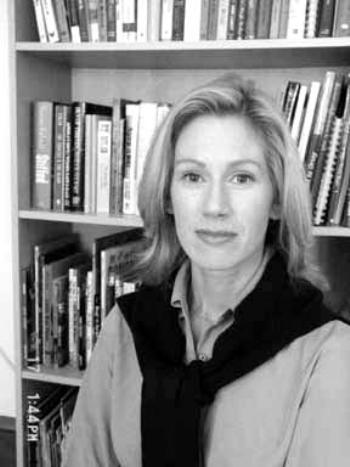When the Nieman Foundation for Journalism Fellows arrived on campus this fall, they included—for the very first time—an Internet journalist.
Lisa Stone, formerly an editor at Women.com, says she will study how news websites can be made more interactive and how the Internet can “reinvgorate the relationship between audience and the news,” a relationship that she says has been lagging in recent years.
“We as journalists cannot present our coverage in the traditional way that we have,” Stone says. “It comes across as difficult to use or as a poor substitute for the traditional media—no matter how good the content is.”
Over the last five years, about three-quarters of Nieman fellows have been reporters or editors from print media, but the mix changes year to year and often includes photographers, television producers and radio correspondents.
The Nieman Foundation has never had an online journalist before, but nothing in the foundation’s criteria for fellows rules out reporters from online media outlets, says Nieman Curator Robert H. Giles.
“Online is simply a delivery mechanism,” he says. “Our role is to evaluate the journalistic experience these people have had and measure them against other candidates.”
“We didn’t think that was necessarily something to be considered a negative,” Giles says of Stone’s background in online journalism.
The Nieman Foundation is not the only media institute on campus where Internet journalists are hard to come by. The Shorenstein Center on the Press, Politics and Public Policy has set out to find online journalists for its fellowship program, which invites journalists, scholars and government figures to Harvard to study how the news media influences policymaking.
But despite recruiting efforts, the Center has never had an Internet journalist in its fellowship program, says program administrator Edith M. Holway.
Holway says she has tried unsuccessfully to get reporters from Slate, Salon and other websites to apply for Shorenstein fellowships. But online journalists are reluctant to leave a fast-moving industry during slow economic times.
“We’d love to have them, and they know it,” she says. “It’s that the individuals are afraid to take the time off. They might not have a job for them [when they come back]. These are times when it’s very hard for journalists to keep jobs.”
If Internet journalists do apply for Shorenstein fellowships, she says, the new and unsettled nature of their profession makes picking fellows for the prestigious posts more difficult.
“I think it’s still hard to get around what is good journalism,” she says. “I think we would be very selective in that area.”
Out of nearly 100 nominees last year, the Nieman Foundation received no applications from online reporters from mainstream news organizations. And the foundation, which promotes the fellowships on its website and in media industry magazines, is not making a special effort to recruit Internet journalists.
“It’s our belief that the places that we do advertise and make information about the Nieman Fellows [available] reach large numbers of journalists,” Giles says.
Read more in News
Law School To Produce ‘The Crucible’













